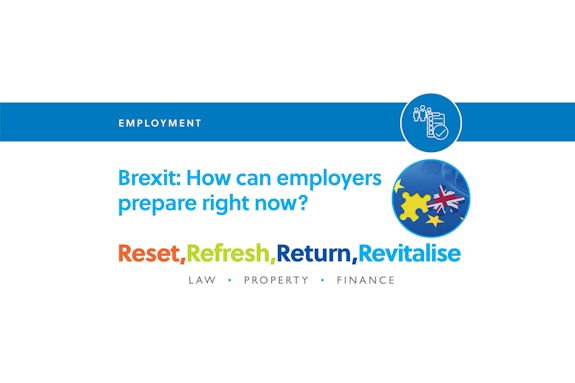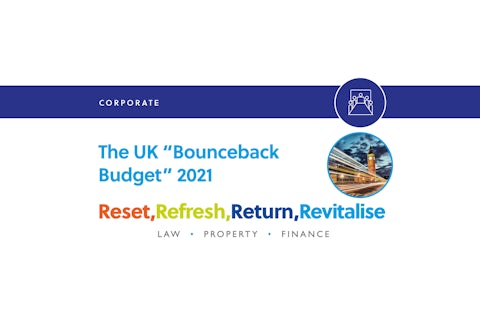It hardly seems like four years ago that we started discussing on what terms our exit from the EU might happen, yet at the same time it feels like an eternity. We are now very much down to the wire as trade negotiations continue between the two parties despite the looming deadline of 31st December.
It’s hard to write a ‘how to prepare’ piece, as the situation changes daily. And for businesses, multiply that challenge a thousand-fold.
2020 has dealt a huge blow to businesses in just about every way, and the ongoing uncertainty surrounding Brexit – which currently looks likely to continue until the bell tolls on the final day of the year – just adds insult to injury. The uncertainty around whether we leave with a deal or not provides businesses precious little opportunity to adequately prepare.
However, while we remain in this pre-Christmas, mid-Pandemic, impending Brexit limbo, there are some steps businesses that will be most impacted can take while the final talks take place.
- Identify and support key impacted staff on immigration status
Organisations need to be aware of – and may need to seek to directly address – how their employees are affected by specific changes to immigration rules brought about by Brexit.
The first step an organisation can take is to immediately conduct an audit and risk assessment to establish their exposure to labour disruption (over the long and short term) and a subsequent skills shortage. Should the audit identify certain key individuals who are nationals of EEA states and will therefore be impacted by the end to freedom of movement, the organisation must take steps to retain these workers by all means legally practicable. This can include:
- Consideration of what resources are needed to mitigate this impact of Brexit on affected employees. For example, the organisation might consider paying for employees to receive individual legal advice on securing UK residency to assist retention.
- Ensure that the HR team develops a consistent approach to providing regular updates for affected employees and addressing their questions.
- Check and monitor the immigration status of UK inbound and outbound expatriate workers, the duration of their stay abroad or in the UK and the date on which they can apply for permanent residence or citizenship (including potential dual citizenship) under local rules.
- Consider whether it is worth bringing some workers into the UK now, or encourage them to secure their UK immigration status or citizenship rights through the Settlement Scheme. This may help to manage the risk that they will be affected by future immigration restrictions.
- Develop a strategy to fit new immigration rules
The next step which can be taken to be prepared for a post-Brexit world is a review of how immigration rules will impact your organisation. The UK government’s points-based immigration system was introduced in 2018. As such, organisations must comply with the system when designing a strategy for getting the best access to the skills they will need from the immigration routes available to them in the post-Brexit environment.
- Prepare for service gaps
Brexit will undoubtedly disrupt to all businesses, particularly multinational companies and UK businesses that engage in substantial cross-border trade. But even for businesses that are not directly impacted, they are likely to experience the impact of Brexit due to key players in their supply chains which may present service gaps.
These logistical challenges, in tandem with the unavailability of appropriately skilled workers will put some service delivery under threat in the short term and may disrupt some services completely. Businesses need to take steps now to identify the areas where such gaps will appear and ensure short-term solutions to mitigate this are in place. These might include suspending or terminating certain services which will need a contractual solution to mitigate exposure to customers and suppliers.
- Appoint a Brexit lead
Given that new systems may be needed, and changes are constant, it will really help to appoint a person or a team with specific focus on Brexit. If new paperwork or certification is needed, they can roll it out across your organisation. If you need specific help, they will identify it. One dedicated person or a small team can better keep abreast of the situation than many people with other jobs to do.
These steps taken alone will by no means temper the wider impact that Brexit will have on businesses. But they will allow businesses to get in the mindset that there will be some sort of impact. We’ve all become accustomed to pivoting this year, and there is more ahead of us. Deal or no deal, given our experiences of 2020, we might just be more prepared to deal with the great unknown than we think.
If you would like further information regarding the topics discussed in this blog, please contact:
Stuart Robertson by email: srobertson@gilsongray.co.uk or by phone: 07793 821 523 / 0141 433 7752
Graham Millar by email: gmillar@gilsongray.co.uk or by phone: 07841 920 102 / 0141 530 2023
You can also visit our Employment Law Team page by clicking here.
The information and opinions contained in this blog are for information only. They are not intended to constitute advice and should not be relied upon or considered as a replacement for advice. Before acting on any of the information contained in this blog, please seek specific advice from Gilson Gray.








